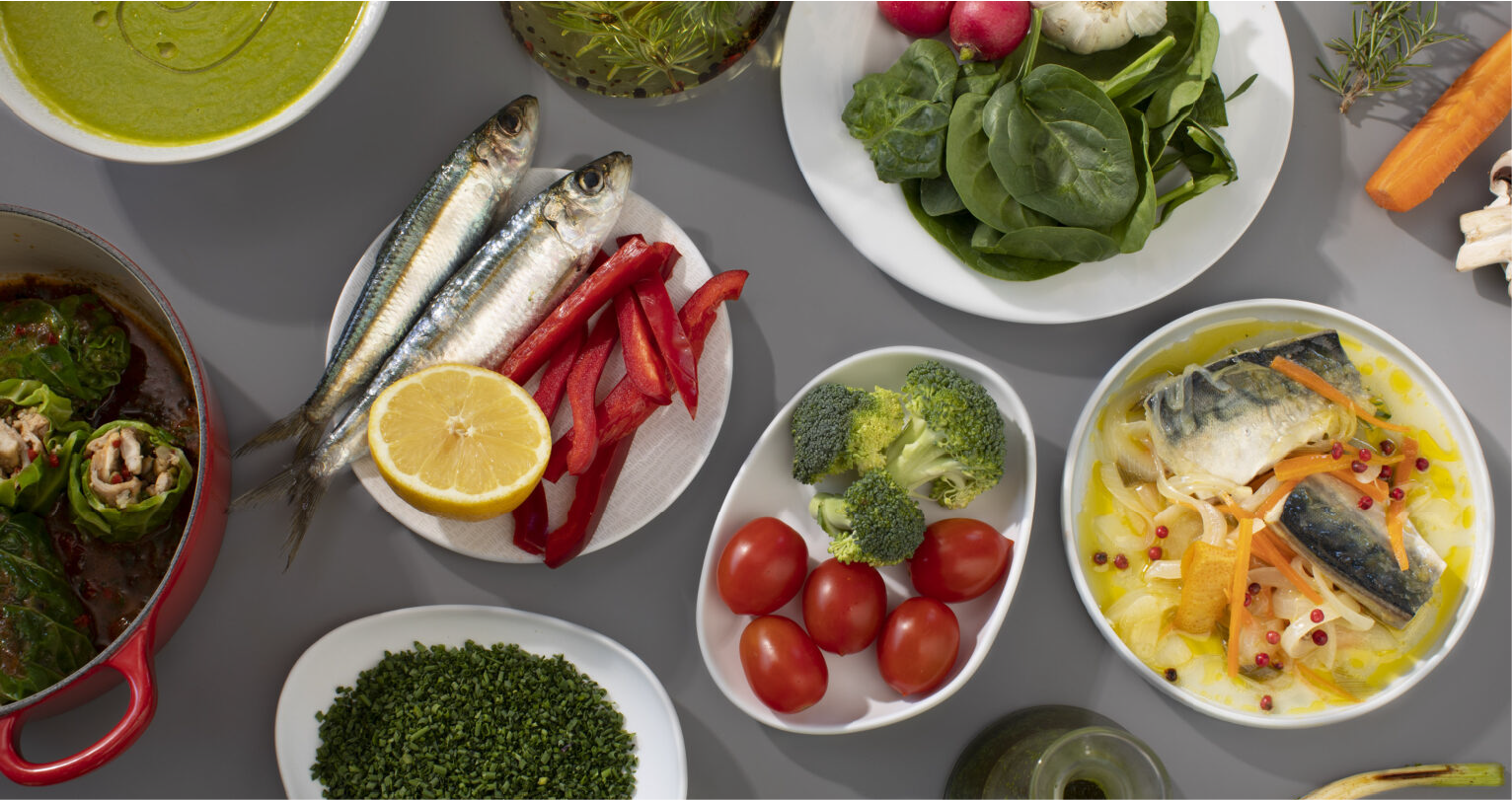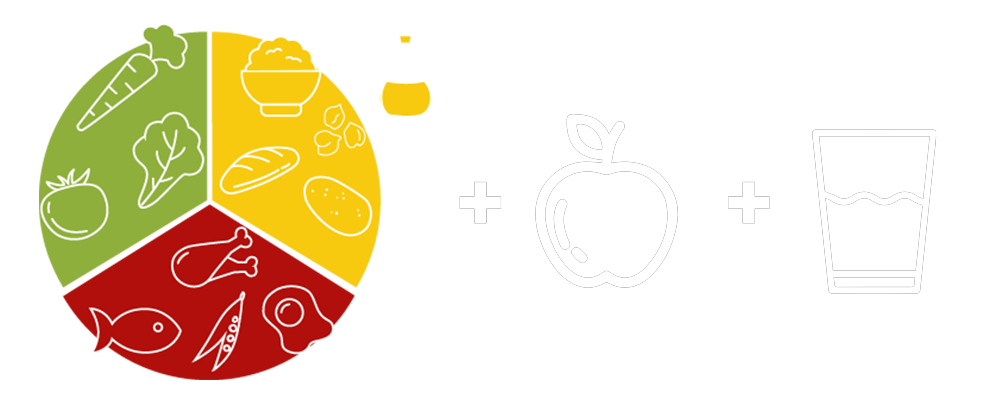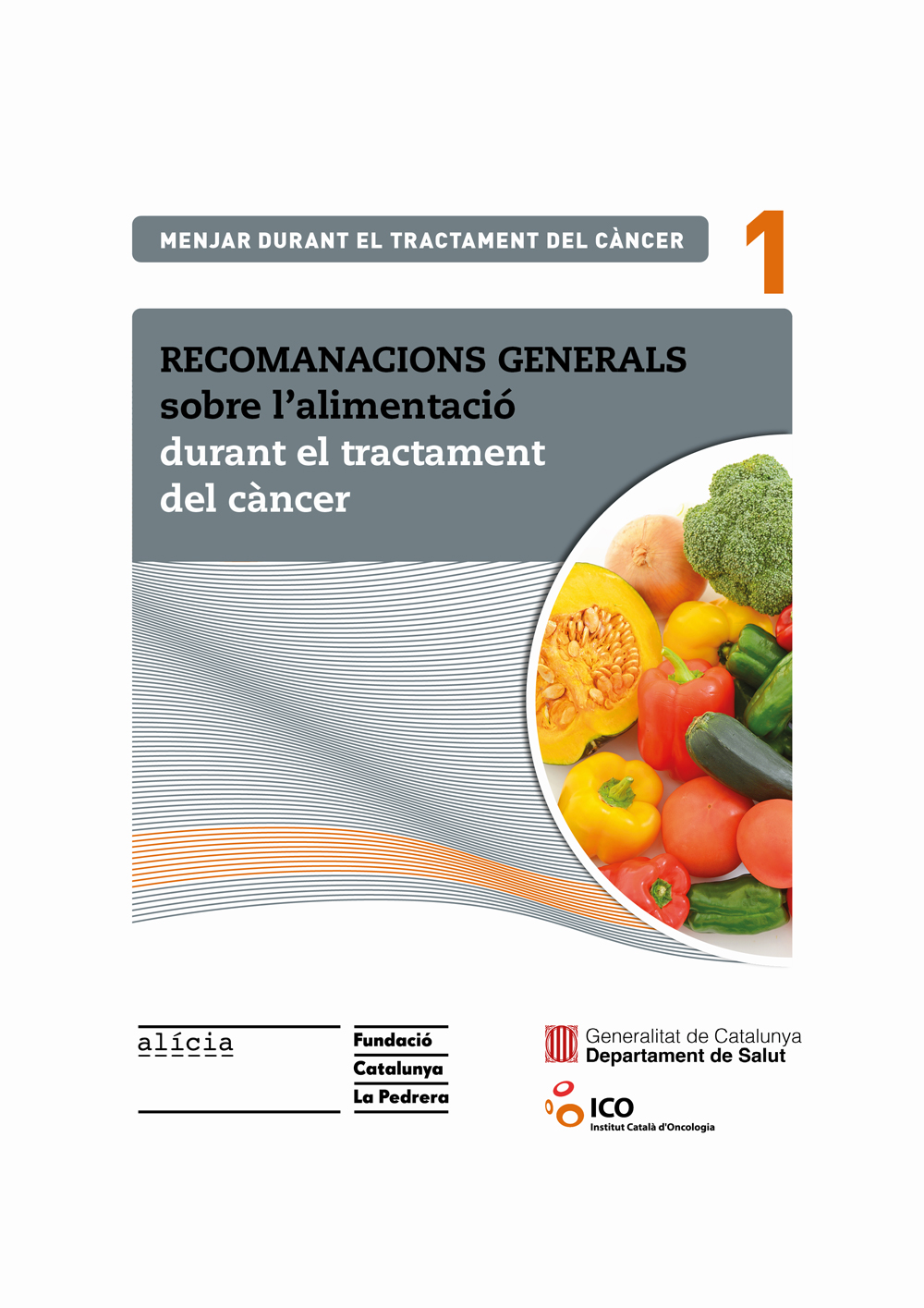Which should be the diet during cancer treatment? What advice and recommendations should you follow? How to maintain an optimal nutritional status? Read the information, advice, and recommendations below to adapt the diet to the treatment.
Most treatments are long and combine different types of therapy that can cause multiple side effects. The general dietary recommendations are similar for all oncological processes and stages of treatment, nevertheless, they should be adjusted according to the symptoms or side effects of each treatment.
Whatever the type of cancer, the location of the tumor, or the treatment stage (and if there is no specific recommendation from your doctor), the general recommendation is to follow a healthy and balanced diet which contains foods from all food groups in the adequate quantity and frequency.
FOLLOWING AN APPROPRIATE DIET DURING CANCER TREATMENT HELPS TO:
Obtain the necessary nutrients so the body functions well
Maintain a good nutritional status
Maintain an adequate body weight
Keep the body hydrated
Better tolerate treatment and side effects
Fight possible infections
Maintain quality of life throughout the treatment
A healthy and balanced diet contains foods from all food groups in adequate quantity and frequency. It provides all the necessary nutrients to take good care of our body and its functions while ensuring energy and essential proteins for maintaining a good nutritional status.

The following information presents 10 key points to take into account when talking about food and diet during the treatment of any type of cancer, which should be adapted according to the possible appearance of side effects from treatment, complications or specific situations arising from the location of the tumour or previous pathologies such as allergies, intolerances, diabetes, cardiovascular problems, kidney disease, or others. It is essential to talk to a registered dietitian about the suitability of these recommendations for your specific requirements.
It is important to divide food into several meals a day as this helps to keep the body active, promotes digestion, controls blood glucose levels, and provides more ways to include the energy and nutrients that the body needs.
Each meal must include foods rich in carbohydrates to meet the necessary supply of energy the body needs. Our main sources of energy come from cereals and cereal-based foods (rice, wheat, corn, quinoa, and derivatives), tubers (potato, sweet potato, cassava…) and legumes (lentils, chickpeas, beans, soybeans…). These foods should be present in most of our meals as they provide the most important source of energy for the body. Always choose wholegrain versions (unless indicated otherwise) to increase fibre intake and reduce the risk of constipation.
All fruits and vegetables are unique. Each one has its properties, so it is important to eat a variety of seasonal fruit and vegetables every day. Eat different types and colours of fruit and vegetables every day to take advantage of the various vitamins, polyphenols, carotenes, and other beneficial phytochemicals they provide. Although nowadays many varieties of fruits and vegetables can be found all year round, seasonal and local foods are usually tastier, at the best point of ripeness and aroma, and have the best nutrient content and bioactive compounds.

Include at least two to three pieces of fresh fruit and two servings of vegetables every day. Vegetables should be consumed both cooked and raw. Raw vegetables (salads, cold soups, etc.), are better to eat midday (lunchtime), whilst cooked vegetables are more suitable for later during the day (dinner time), as they are more easily digested. Fruit, on the other hand, is better to be eaten raw and always as natural as possible (the less processed the better), and ideally, with its skin, as eating fruit and vegetables with their peel can increase nutrient intake. It is also important to keep in mind that whenever we eat raw fruit or vegetables, we make sure they are well washed.
Protein is necessary to repair body tissue as well as to maintain a healthy immune system. Cancer patients often need a higher protein intake than usual to help repair tissues and fight possible infections.
-
Meat, fish, seafood, eggs, and soya are the foods with the best quality protein. Add fish (white or oily), seafood, meat (mainly lean), eggs, soya, or any of its derivatives (tofu, textured soya) to both lunch and dinner. If it is not possible to include these foods in both meals of the day, try to include them in at least one of them, and then throughout the day including other foods that are also a good source of protein.
-
Milk, yoghurt, and cheese provide us with minerals, vitamins and proteins that are essential for our body, so include them twice a day. You can consult a specialist about which of the products better suits your needs (whole, semi-skimmed or skimmed milk).
Some protein-rich foods:
| Animal-based foods |
White fish: monkfish, hake, cod… |
| Plant-based foods |
Dried or cooked legumes: lentils, chickpeas, beans (red, black, white…), soya beans… |
For people who follow an exclusively plant-based diet, with little or no animal source food (vegan, vegetarian, raw vegan, etc.), it is very important to consult a registered dietitian to study how to adequately obtain the necessary proteins, vitamins, and minerals that the body needs to cope with oncology procedures.
It is essential to make sure that main meals, such as lunch and dinner, are complete, full meals, and that they include a portion of vegetables, a portion of energy-sourced foods, and a portion of protein-sourced foods. Following the plate method is a practical way to achieve this. This general approach ensures intake of the essential nutrients required in a day, nevertheless, the amount and proportion of each quantity may vary depending on the recommendations of the medical specialist or the clinical situation.

The plate method also allows the preparation of a large variety of dishes: from combined dishes to complete dishes, meals with a starter and a main course, a first and second course, and even sandwiches or small servings.
Drink one and a half to two litres of water every day (about six to eight glasses). The best option is always water, but there are other liquids such as sparkling water, teas and herbal teas or vegetable broths that are also good for hydration. Limit the consumption of soft drinks, commercial juices, and other sugary drinks because of their high sugar content. It is important to avoid drinking alcoholic beverages.
You should:
- Wash hands with soap and water and keep the kitchen and cooking spaces clean (fridge, cooking utensils, cooking cloths, etc.).
- Clean all food thoroughly before cooking, especially food that will be eaten raw, such as fruit with the skin and some vegetables.
- Separate raw food from cooked food and in the fridge create separate spaces for them, keeping them in airtight containers.
- Cook food well and reheat sufficiently when needed.
- Freeze cooked food that is not going to be eaten as soon as possible.
- Always defrost food in the refrigerator or microwave, never at room temperature.
You should:
- Avoid fried foods and strong stews.
- Prioritise boiling, steaming, baking, grilling, en Papillote or microwaving cooking methods.
- Use extra virgin olive oil both for cooking and seasoning food.
- Use aromatic herbs and spices (parsley, cinnamon, turmeric, curry, ginger, coriander, rosemary, basil, etc.) to give different flavours to foods and, at the same time, include beneficial compounds.
Do not diet or eat different foods from the rest of the group, family, or friends, as this will help to normalise and relax mealtimes, reducing stress and the feeling of being sick. Limiting does not mean avoiding; there is no need to feel guilty if you do not always follow these recommendations exactly, sometimes it is important to eat from a more emotional point of view.
Avoid spending too much time in bed or on the sofa. Be active for as long as possible and try to adapt the intensity and duration of physical exercise to your condition at each stage of treatment. Consult your doctor as to which activities are most recommended in your case. If tiredness or discomfort does not permit any type of activity, you should at least try to walk for 20 to 30 minutes a day.
